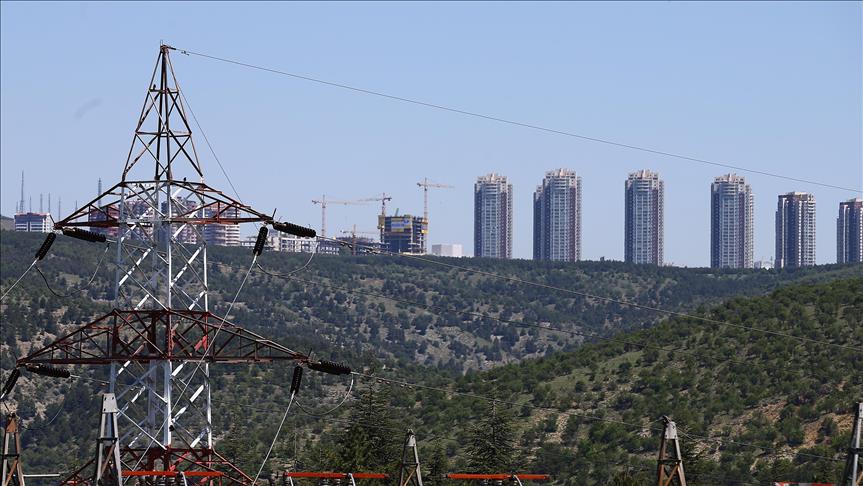Turkey's electricity consumption decreased year-on-year by 0.59% in 2019, according to data of Turkish Electricity Transmission Corporation on Friday. The country's power consumption registered at 290.45 billion kilowatt-hours in 2019 compared to 292.17 billion kilowatt-hours in 2018.
Turkey produced 291.22 gigawatt-hours of electricity in 2019 - a production decrease of 0.93%, down from 293.78 gigawatt-hours in 2018. Turkey's electricity imports from neighboring countries also fell by 10.32% and reached 2.11 billion kilowatt-hours compared to 2.46 billion kilowatt-hours in 2018.
In addition, the country's electricity exports to neighboring countries decreased by 9.27% to 2.79 billion kilowatt-hours of electricity. Electricity exports in 2018 amounted to 3.07 billion kilowatt-hours.
According to official figures, the installed capacity of the country reached 91.27 thousand megawatts by the end of November. Official data from Turkish Electricity Transmission Corporation for December and 2019 overall has yet to be released.
Turkey aims to increase its natural gas production from local and renewable resources, and to this end, last year saw record-high electricity generation from renewables. Turkey's wind electricity generation hit a daily record on Sept. 15 with the generation of 19% of total power from wind.
On Nov. 5, Turkey's Energy and Natural Resources Minister Fatih Donmez announced that Turkey produced 46% of its electricity from renewable resources during the first 10 months of 2019, which he said represented a steady monthly increase.
Local and renewable energy resources combined saw a total share of 64% in electricity production in the January-October period of 2019, marking a record high level, the energy minister said. These figures ensured that Turkey reached its objective of producing two-thirds of its electricity in the short-term from local and renewable resources, he affirmed.
The country made greater efforts to add more renewable energy power generation in its energy mix in 2019. With this aim, the country finalized its second renewable energy resources zone (YEKA) wind tenders on May 30. Turkey's Enerjisa and Germany's Enercon won the tenders for a total capacity of 1,000 megawatts (MW).
The YEKA tenders form part of Turkey's aim to supply 65% of its energy needs from domestic and renewable sources by 2023. In the first 1,000 MW wind tender that Turkey's Renewable Energy Resources Zone Project offered, a Siemens Gamesa - Turkerler - Kalyon consortium won the tender by submitting the best price of $3.48 per kilowatt-hour.
During the fourth quarter of 2019, the country announced plans to hold YEKA tenders for solar energy in a new form, known as "mini YEKA." The tender announcement came from Donmez on Oct. 7, when he said he expects the tenders will be held in the first quarter of 2020.
Along with renewables, the country's efforts to make better use of local resources expanded to oil production. On Oct. 5, the country started crude oil production using hydraulic fracturing, also known as fracking. This is the country's first time to apply fracking methods for crude production, which took place in the southeastern province of Diyarbakir.
(Anadolu Agency)




